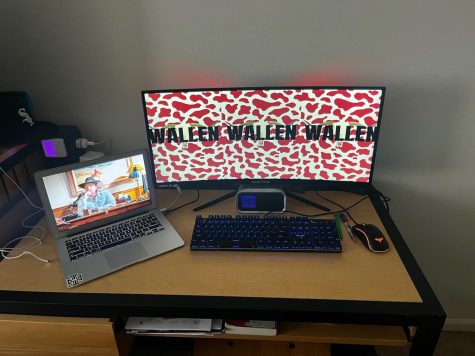COLUMN: CDD Breakout Session Deals with Creativity and Depression
Creativity? Depression? How do these two things relate?
Well, the Psychology Club of Siena Heights University can answer this question. On Nov. 12, Siena Heights University held the event known as Common Dialogue Day, or CDD for short. This is day where students, faculty, staff, and special guests can come and present to the students on a variety of topics under a general theme. This year’s theme was leaving your legacy.
The Psychology Club hosted a session about how creativity can help battle, and even cure, depression in people. The club shared a presentation mixed with factual information, personal stories, and opened the floor to attendees of the presentation to share their events.
I thoroughly enjoyed the presentation, and I felt the topic hit a spot close to home. Creativity covers a wide amount of activities from writing and painting to something like baking or cooking. I have found writing to be an area with in creativity that has helped me in more than ways than one.
I’ve always found writing as a way to fight depression because writing, and all creative arts, are an emotional outlet to help you come to a better state of mind.
The club went into detail about the usage of colors, writing stories and cooking helped people fight their depressive states. All of these forms of creativity bring people into something known as mindfulness, which in its core, is being aware of your surroundings and living in the present.
Mindfulness helps reduce depression because of how it allows people to focus on the moment they are living in instead of the topics or aspects that are keeping them depressed. In other words, mindfulness pulls the plug on depression because we are able to focus our attention on different topics. I liked how the club described and used this in their presentation.
They showcased mindfulness through creativity mainly through cooking. If you are cooking or baking, you must be aware of your surroundings because you could end up injuring yourself, someone you care about, or ruining the dish.
By choosing to be creative, you are invoking mindfulness so that you are aware of the piece you are working, which allows you to leave your depressive state. I liked this because I can relate to this on a personal level.
When I am working on a short story, book idea, or any piece of writing, I am fully aware and attentive to this piece I am working on. I am not focusing on things that have me down because I am living in this moment.
Overall, I enjoyed the presentation and found it interesting and highly relatable.
While the same presentation may not be offered again at the next Common Dialogue Day, I highly recommend future presentations presented by the Psychology Club for the sole reason of the relatability of the topic to the audience.













